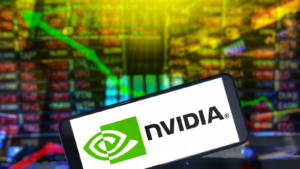
Smart home stocks are worthy companies for you to consider. I love investing in these companies because they are mostly undercovered brands in the financial media. While investors push up the valuations of marquee brands, these smart home stocks are quietly improving their fundamentals and business outlook for the future, and many can be bought up at a steep discount.
Smart home stocks also leverage several catalysts that could propel their stock prices to new heights. AI, robotics, and networking trends help buoy their valuations and competitive moats.
So here are the best smart home stocks to buy for November.
Honeywell International (HON)
Honeywell International (NASDAQ:HON) has a broad portfolio that includes home automation products, and it has been actively involved in integrating its technologies into the smart home ecosystem.

HON stock has recently pivoted towards the automation industry, which includes homes and commercial settings. This pivot is expected to boost its EPS to a $2.15 to $2.25 per share estimate.
Despite some short-term weakness, some market commentators have expressed a positive outlook on HON stock, emphasizing that contrary to some investors’ concerns, the company is expected to meet or exceed its future earnings expectations.
Furthermore, despite its year-to-date stock decline, Honeywell’s reaffirmed its positive guidance, which puts it in a good step moving forward. This makes HON one of those smart home stocks to buy.
Nvidia (NVDA)

Nvidia (NASDAQ:NVDA), known primarily for its graphics processing units (GPUs), NVDA stock has significantly expanded into the home automation and AI sectors, making it a key player in its own right.
NVIDIA is expanding its role in home automation and the Internet of Things (IoT) through its AI technologies, like the NVIDIA Metropolis vision AI platform utilized by Industry.AI at Bengaluru Airport. Similar implementations are expected to be released for smart home environments, which furthers its position as an IoT leader.
NVDA’s share price has been on a hot run recently, setting a new all-time high of approximately $504.09, following a 20 percent surge in the last four weeks. This upswing comes amid heightened expectations from investors due to Nvidia’s significant role in the AI sector, with the company’s market valuation reaching $1.22 trillion and its stock rallying about 245 percent since January.
The positive movements may attract momentum and long-term alike, thus making it one of those smart home stocks to buy.
Rockwell Automation (ROK)
Rockwell Automation (NYSE:ROK) has also made strides in home automation. It’s noted for a substantial year-to-date increase in stock value in 2023 and has reported impressive earnings.

ROK’s operating segments are primarily in industrials, but it has also recently made strides to expand into the residential smart home market. The company delivered a solid fiscal fourth-quarter performance with net income of $302.9 million and earnings of $3.64 per share, surpassing Wall Street’s expectations of $3.49 per share. ROK exceeded revenue forecasts with $2.56 billion against the anticipated $2.44 billion.
Topping this off is an optimistic earnings forecast ranging from $12 to $13.50 per share, which helps make it one of those smart home stocks to consider.
On the date of publication, Matthew Farley did not have (either directly or indirectly) any positions in the securities mentioned in this article. The opinions expressed are those of the writer, subject to the InvestorPlace.com Publishing Guidelines




